- OpEd Project
Introducing the 2024 Paul & Daisy Soros Public Voices Fellows
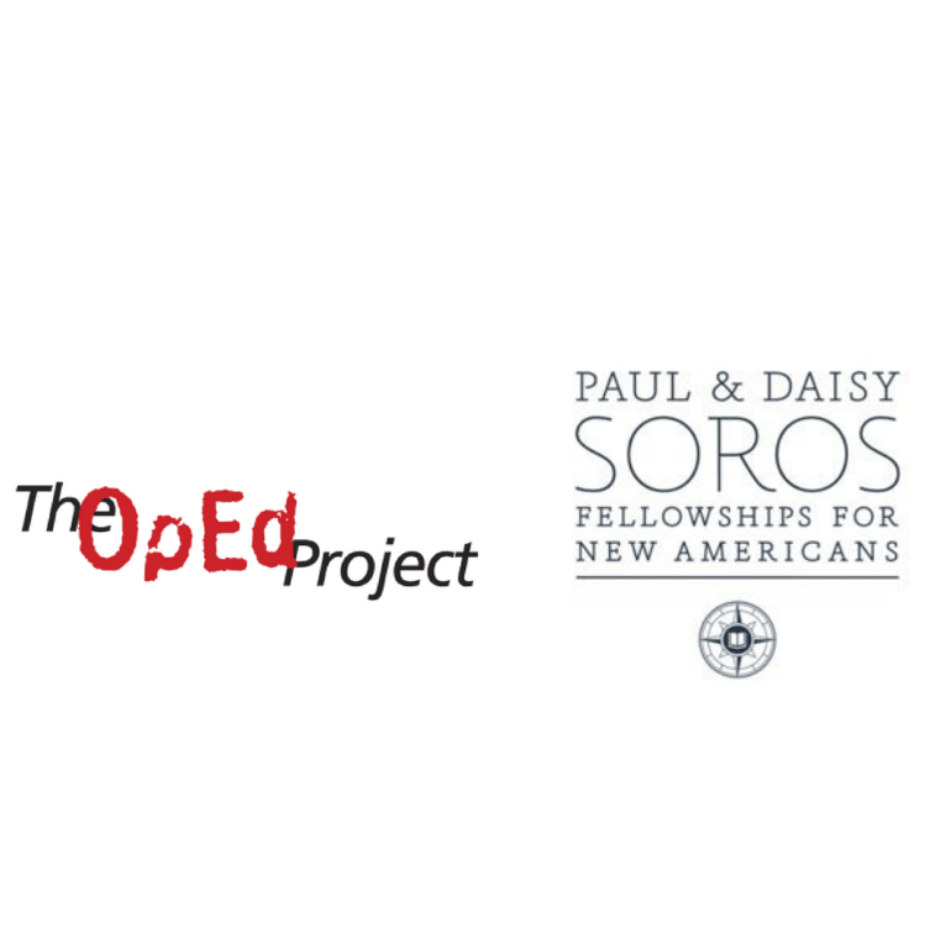
The Paul & Daisy Soros Fellowships for New Americans, in partnership with The OpEd Project, are happy to announce the 2024 Public Voices Fellows. The year-long fellowship will provide a cohort of twenty Paul & Daisy Soros Fellows with extraordinary support, leadership skills, and knowledge to ensure their ideas shape not only their fields, but also the greater public conversations of our age.
Learn about the Fellows here:
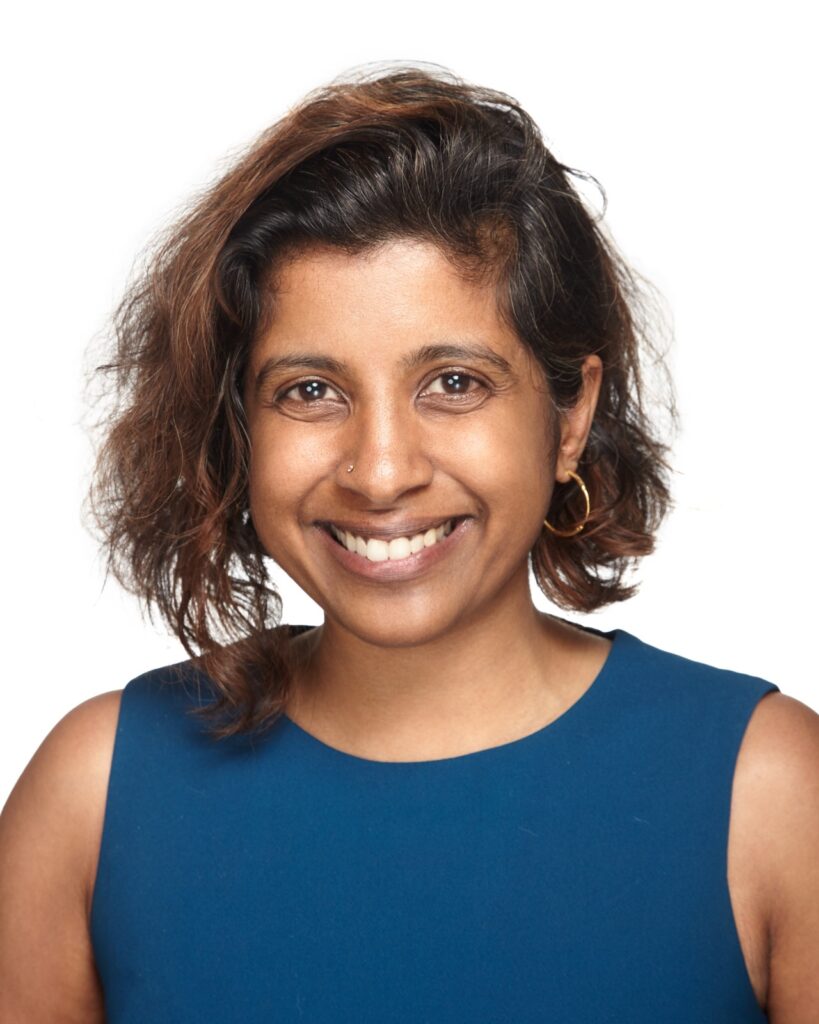
Chitra Aiyar has over 25 years of experience in the nonprofit sector working as an attorney, educator and administrator on a range of issues from immigration to microcredit to college access for low-income students. She is co-producer of the documentary film, Claiming Our Voices, author of the report, Reclaiming Retirement for All, and was a 2018 TED Speaker. Chitra recently returned to law school after twenty years to complete an LLM in Taxation to better understand how tax policy impacts wealth distribution and creates the ecosystem in which nonprofits operate.
Aziza Almanakly, 2021 Paul & Daisy Soros Fellow
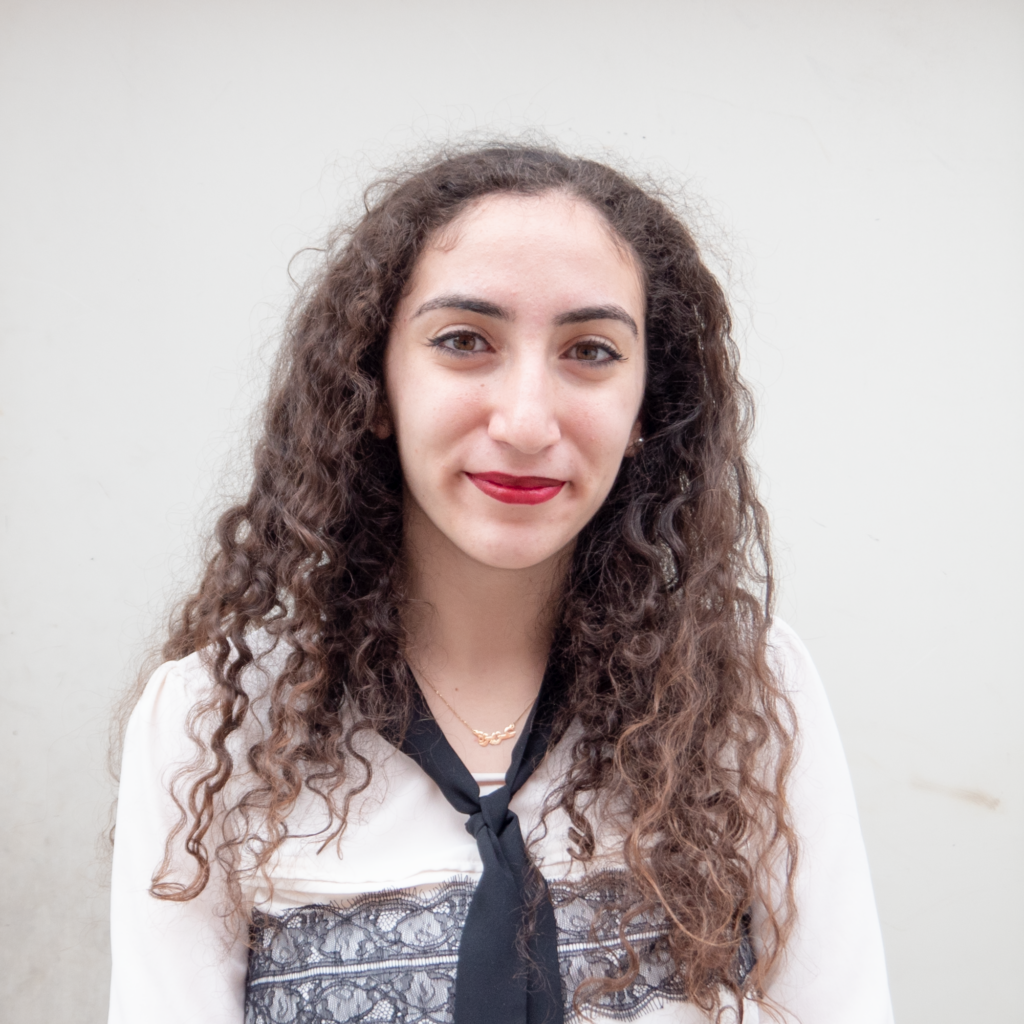
Born and raised in Northern New Jersey, Aziza Almanakly is the daughter of Syrian immigrants, who came to the United States in the early 1990’s in pursuit of academic opportunities. Growing up, Aziza was surrounded by the energy of the music of Amr Diab, the superstition of the evil eye, the warmness and hospitality, and the overall enthusiasm of Syrian culture, and she only spoke Arabic until entering elementary school. As the civil war in Syria grew dire, more family members sought asylum in the US, and Aziza was fortunate enough to grow up around cousins and aunts and uncles, who built a new version of their Syrian home in New Jersey.
Following in the footsteps of her mathematically minded father, Aziza chose to study electrical engineering in college at The Cooper Union for the Advancement of Science and Art. In those four years, she gained more than technical training; she learned first-hand the importance of strong mentorship in diversifying engineering to expand the capabilities of budding technologies. Aziza pursued teaching and mentorship opportunities, using her unique experience as a New American and one of few women in her class to encourage younger students of underrepresented backgrounds in New York City to enter STEM. After reading about quantum computing in the Wall Street Journal, Aziza was eager to become a part of the present-day scientific revolution. The realization of quantum computers would provide unprecedented computational power to analyze and manipulate complex natural and man-made systems; from protein simulations for drug-related research, to unbreakable data encryption for network security. Throughout her time as an undergraduate, Aziza pursued research opportunities in experimental quantum computing at Princeton University, the City University of New York, New York University, and the California Institute of Technology.
Aziza is currently a PhD student in electrical engineering and computer science at the Massachusetts Institute of Technology. She is researching microwave quantum optics with superconducting qubits for quantum communication under Professor William Oliver. Aziza’s career goal is to engineer multi-qubit systems that push boundaries in quantum technology.
Eric Chung, 2016 Paul & Daisy Soros Fellow
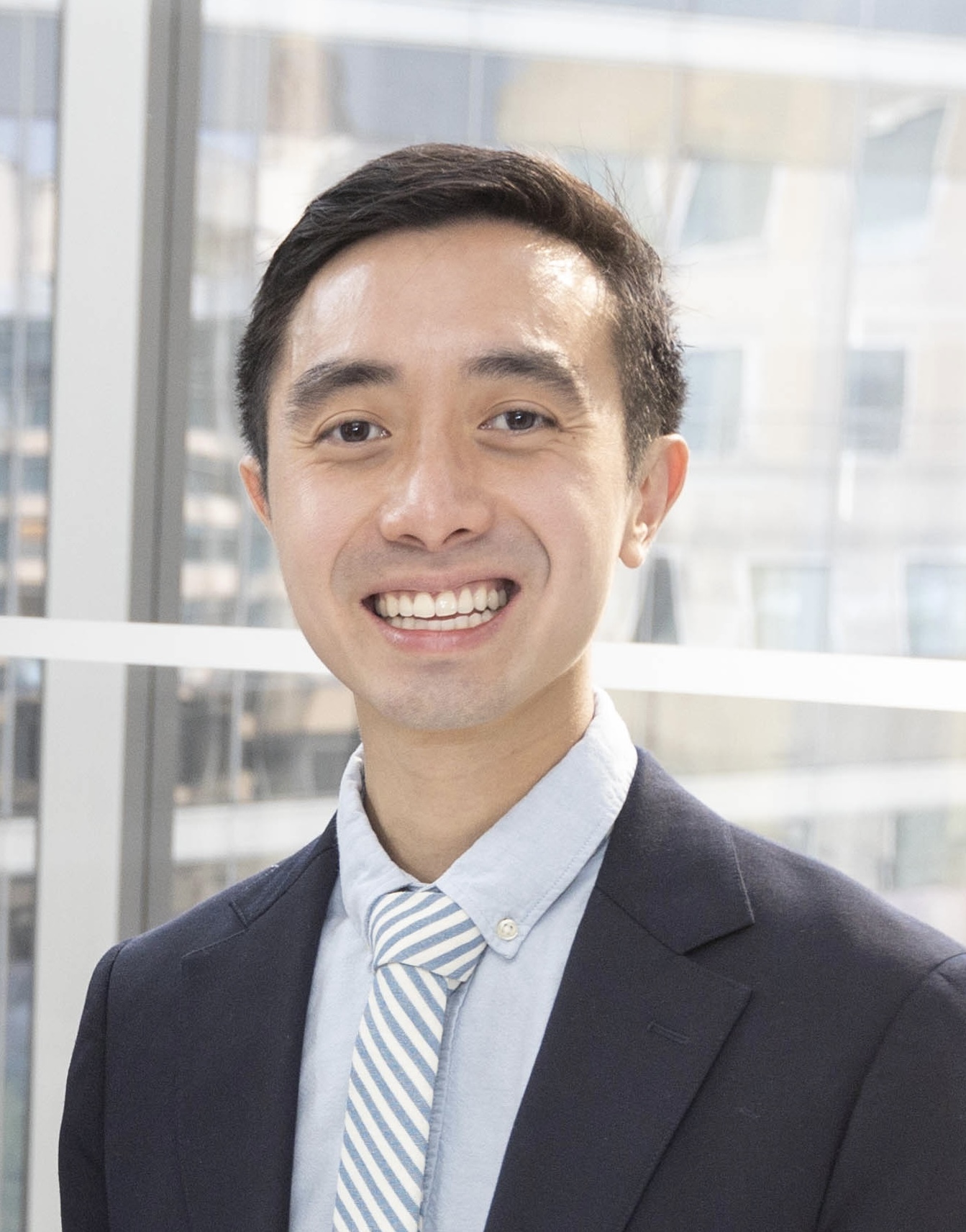
A son of immigrants from Vietnam, Eric grew up in Madison Heights, a small city near Detroit, Michigan, where he witnessed firsthand the importance of educational mobility. Inspired by his parents’ sacrifices to ensure a better life for their children, and by the many undeterred students and teachers in his hometown who made the most of limited resources, Eric made it his mission to use his own opportunities to help others access theirs. He received his AB, summa cum laude, from Harvard University and his JD from Yale Law School, where he focused on education, health, and welfare law and policy. Eric has served in all three branches of government. He is Associate Chief Counsel at the U.S. Department of Commerce, where he is advising the implementation of the CHIPS and Science Act, a landmark economic and national security law. In 2022, Eric served as Special Counsel to Chair Dick Durbin and the US Senate Judiciary Committee to assist with the confirmation process of Justice Ketanji Brown Jackson to the US Supreme Court. In 2017, he co-authored The Portrait Project: A Portrait of Asian Americans in the Law 1.0, the first comprehensive study of Asian Americans in the legal profession.
Emi Ferguson, 2011 Paul & Daisy Soros Fellow

A 2023 recipient of the Avery Fisher Career Grant, Emi Ferguson can be heard live in concerts and festivals with groups including the Handel and Haydn Society, AMOC*, Ruckus, New York New Music Ensemble, Manhattan Chamber Players, and as the music director of Camerata Pacifica Baroque. Her recordings Amour Cruel and Fly the Coop: Bach Sonatas and Preludes, celebrate her fascination with reinvigorating music and instruments of the past for the present and have been called “blindingly impressive … a fizzing, daring display of personality and imagination” by The New York Times. Emi has spoken and performed at TEDx events and has been featured on the Discovery Channel, Amazon Prime, WQXR, and Vox talking about how music relates to our world today. As part of WQXR’s Artist Propulsion Lab, she created the series “This Composer is SICK!” exploring the impact of Syphilis on composers Franz Schubert, Bedřich Smetana, and Scott Joplin, is a new host of WQXR’s Young Artists Showcase. Her book, “Iconic Composers”, co-written with Nicholas Csicsko with artwork by David Lee Csicsko, was released in 2023. Born in Japan and raised in London and Boston, she now resides in New York and is a proud 2011 PDSoros Fellow.
Janine Joseph, 2009 Paul & Daisy Soros Fellow
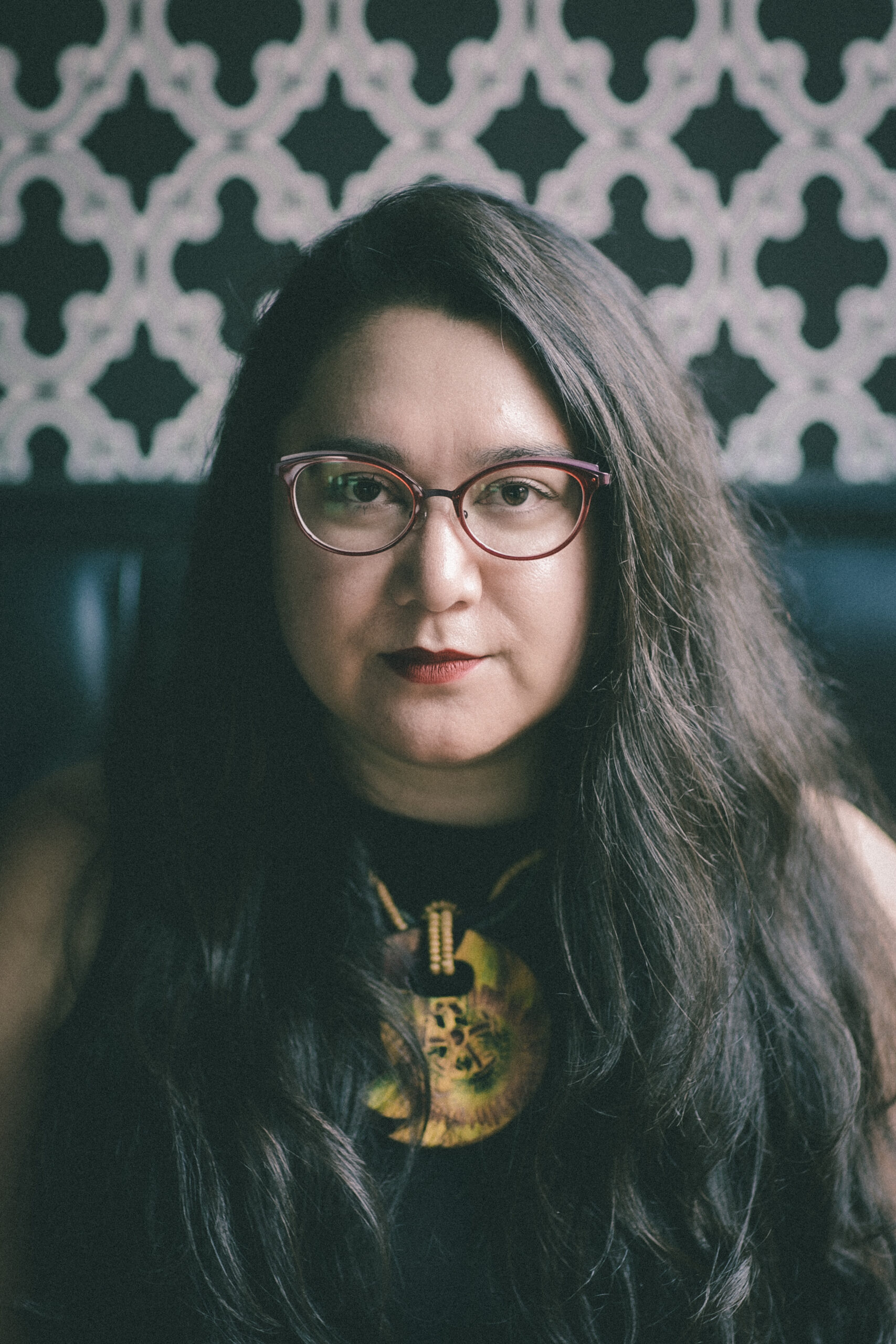
Born in the Philippines, Janine Joseph arrived at the age of eight and lived undocumented in the U.S. for fifteen years. She is the author of Decade of the Brain: Poems and Driving Without a License, winner of the Kundiman Poetry Prize. She is also co-editor of Here to Stay: Poetry and Prose from the Undocumented Diaspora, an anthology of poetry and poetics forthcoming in September from HarperCollins. Her writing has appeared in numerous publications, including The Nation, The Atlantic, Orion, Border Lines: Poems of Migration, Poets & Writers, The Poem’s Country: Place & Poetic Practice, Poem-a-Day, and the Smithsonian’s “What It Means to Be American” project. A librettist, her commissioned works for Symphony New Hampshire, Washington Master Chorale, and Houston Grand Opera include Extraordinary Motion: Concerto for Electric Harp, The Art of Our Healers, What Wings They Were, ‘On This Muddy Water’: Songs from the Houston Ship Channel, and From My Mother’s Mother. A MacDowell Fellow, she is an Associate Professor of Creative Writing at Virginia Tech. Since 2016, Janine has organized for Undocupoets, a nonprofit literary organization that advocates for poets who are currently or who were formally undocumented in the U.S.
Ulcca Joshi Hansen, 2005 Paul & Daisy Soros Fellow
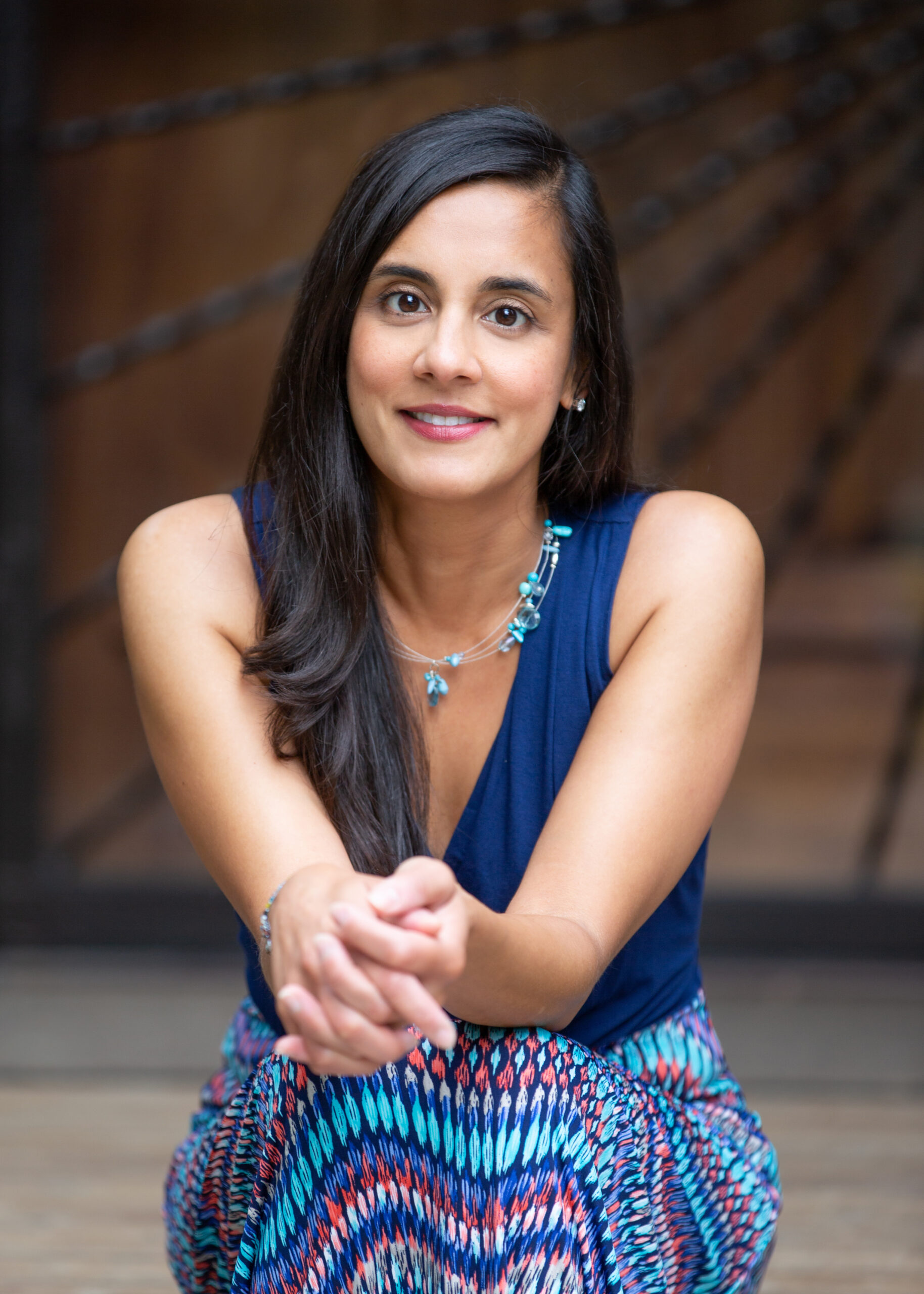
Ulcca Joshi Hansen is an international leader in human-centered design and education transformation. She is the author of the award-winning book The Future of Smart, hosts The Future of Smart podcast, and is a two-time TEDx speaker whose work has been featured by The Washington Post, NPR and COP26. The throughline of her 25-year career has been creating learning opportunities that reflect what we know about human development, cognitive neuroscience, technological advancement and rapid social change.
Most recently, Ulcca served as Chief Program Officer at Grantmakers for Education, a member organization that serves as a trusted partner for education philanthropists seeking to improve education from birth through the workforce. Prior to that she served as Vice President at Education Reimagined, building partnerships between schools, districts, non-profits, businesses and higher education institutions committed to blurring the lines between education and the “real world” of work and civic engagement. Ulcca’s commitment to education reflects her experiences as the child of two Tanzanian-Indian immigrants who began school as an English-language learner and was the first in her family to complete college. She began her career as an early childhood/elementary teacher with a focus on special education, and went on to earn her doctorate at Oxford University and her law degree from Harvard Law School. Ulcca has been recognized nationally for her leadership in education as a Harry S. Truman Scholar; a British Marshall Scholar; and a Paul and Daisy Soros Fellow.
Hsing-ay Hsu, 1999 Paul & Daisy Soros Fellows
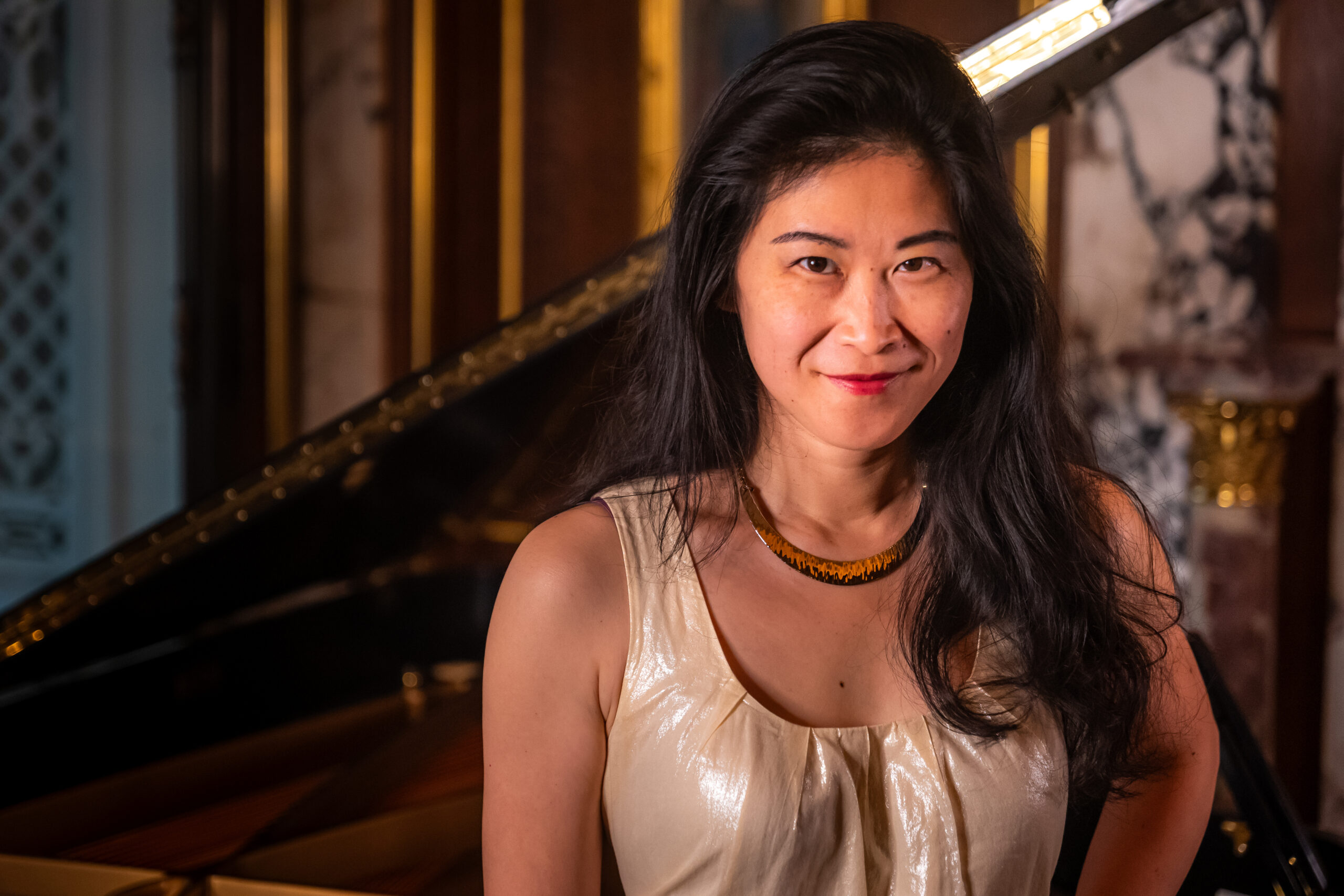
Steinway Artist Hsing-ay Hsu (“Sing-I Shoo”) is focused on the power of listening through classical music to cultivate multidimensional awareness and to connect with music, others, and ourselves. She synthesizes her expertise in performance and somatics with an approachable and disarming teaching style, utilizing the abstract nature of concert music as a mental and emotional playground.
Currently the Artist-in-Residence at Klavierhaus NYC and at Boulder Chamber Orchestra, Ms. Hsu has performed at prestigious venues including Carnegie Hall, Kennedy Center, and Lincoln Center as a soloist. She is recognized as an international prizewinner, concert producer, educator, studio owner, and adjudicator. Praised by the Washington Post for her “power and authority”, she was born in Beijing and holds degrees from Juilliard and Yale University.
Formerly the Artistic Director for Pendulum New Music at the University of Colorado – Boulder, she supervised the premieres of over 500 compositions and hosted international residencies. Equally versatile in academia, the corporate world (through listening workshops), and venues of all sizes, she has been a guest speaker at events such as the Music Teachers National Association convention and engages with audiences through her original Conscious Listeners TM programs,Youtube, and Nutmeg Studio NYC. www.hsingayhsu.com
She is a Paul & Daisy Soros Fellow and a Public Voices Fellow of The OpEd Project.
Arturo Macias Franco, 2022 Paul & Daisy Soros Fellow
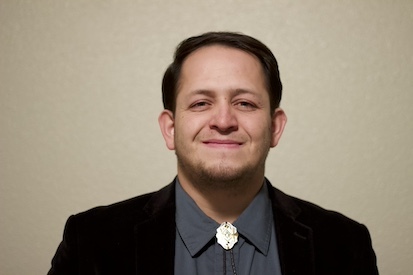
Born and raised in Torreón Coahuila, México, Arturo Macías Franco spent most of his childhood visiting his grandfather’s parcel—admiring nature and the arid agricultural operations of Northern México. At 17, pursuing a better education and life, Arturo immigrated to the United States, escaping the inhabitable violence brought by the drug wars. Though challenging, his experiences as an immigrant, specifically, those in higher education allowed Arturo to find his path and give back.
Arturo attended Napa Valley Community College prior to transferring to the University of Nevada, Reno (UNR). At UNR, Arturo was able to relive many of his childhood memories by attending an institution with a heavy emphasis on dryland agriculture systems. He completed his BSc degrees in agriculture and in veterinary science where he was recognized as the Outstanding Graduating Senior. Arturo defended his MSc and PhD degrees in animal and rangeland sciences with his work on precision livestock feeding, water requirements and water footprint modeling, and precision livestock systems.
Arturo’s research addresses the sustainable intensification of livestock production systems. He is interested in supporting agricultural communities by developing tools that allow producers to feed themselves and their communities more sustainably.
Amrapali Maitra, 2013 Paul & Daisy Soros Fellow
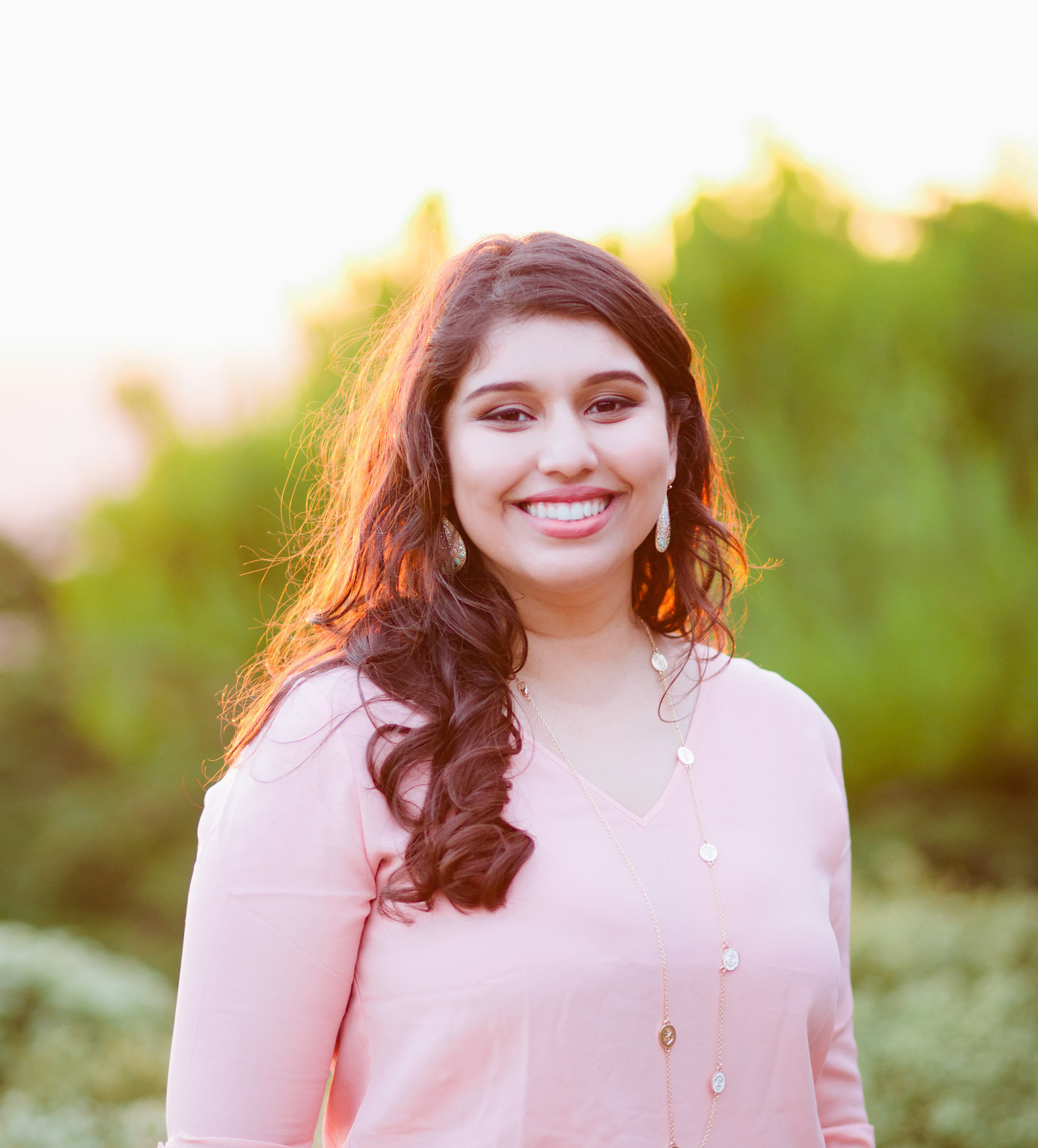
Amrapali Maitra is a physician, anthropologist, and writer who grew up across three continents. She studied literature at Harvard College before pursuing her MD and PhD in anthropology from Stanford University, where she was a Paul and Daisy Soros Fellow for New Americans. She then completed internal medicine residency and fellowship at Brigham and Women’s Hospital and Harvard Medical School.
Amrapali’s research focuses on the intersections of culture, gender, and medicine. She has published on topics ranging from intimate partner violence in Indian clinics and American hospitals to diagnostic uncertainty and gender equity in medical training. Amrapali’s essays have appeared in high-profile medical journals including JAMA and New England Journal of Medicine; her creative nonfiction has been published in The Yale Review, Catapult, McSweeney’s Internet Tendency, Boston Globe, and elsewhere.
Amrapali is on clinical faculty at Stanford Medical School, where she strives to use social medicine, trauma-informed care, and patient engagement to improve healthcare experiences and change culture among the next generation of trainees. She is at work on a book about domestic violence in India drawing from her ethnographic research.
She currently lives in the Bay Area with her husband, daughter, and son.
Mehret Mandefro, 2001 Paul & Daisy Soros Fellow
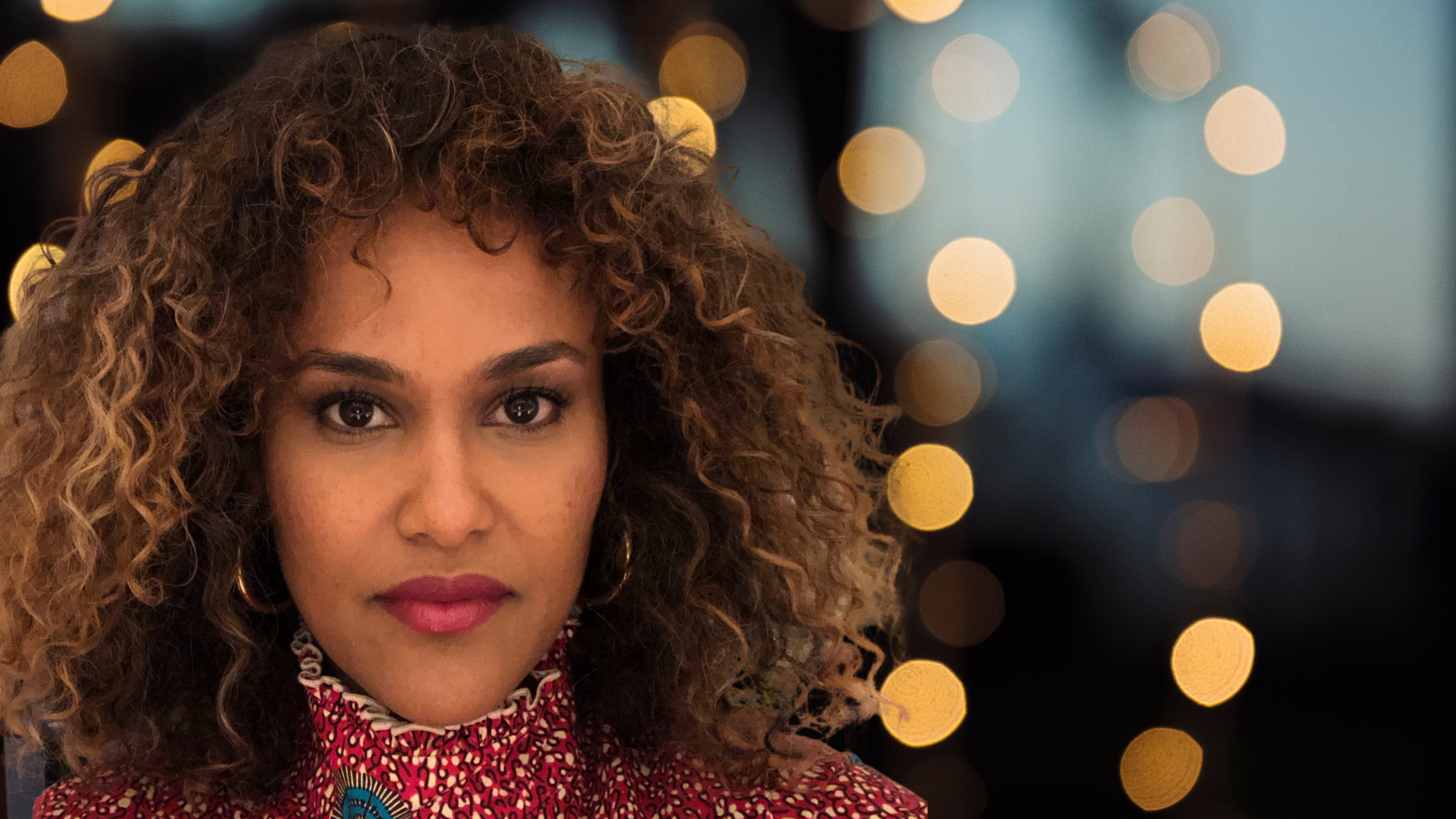
Mehret Mandefro is a film/television industry leader, celebrated for her body of work as an Emmy-nominated producer, writer, and serial entrepreneur. Her track record scaling media businesses and using narrative to shift culture secured her a spot on Variety’s list of most impactful women in global entertainment. Mehret co-founded the independent media production company Truth Aid Media and the nonprofit training organization the Realness Institute which is strengthening the media ecosystem across Africa.
Mehret’s artistic practice is rooted in integrating art and science to produce what she refers to as “audiovisual medicine.” Her healing approach informs her film and television shows which span documentary and fiction, and have been featured on multiple outlets, including Netflix, PBS, American Masters, and Amazon Prime. A member of the Academy of Motion Picture Arts & Sciences and the American Television Academy, she is a sought-after speaker and has a widely watched TED talk about the impact of the creative industry on economic growth in Africa. Mehret has a BA in Anthropology from Harvard University, an MD from Harvard Medical School, a MSc in Public Health from the London School of Hygiene and Tropical Medicine as a Fulbright Scholar, and a PhD in Cultural Anthropology from Temple University. She was a White House Fellow in the Obama Administration.
Wilfredo R. Matias, 2013 Paul & Daisy Soros Fellow
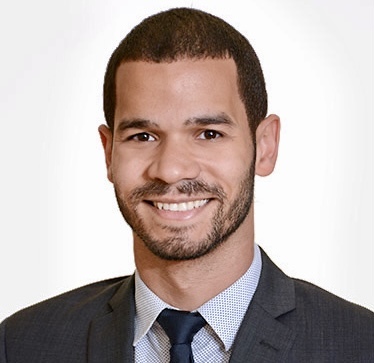
Wilfredo R. Matias, MD MPH is an infectious diseases physician at Mass General Brigham and Harvard Medical School. Broadly, his clinical and research interests focus on the interface between global health, infectious diseases, and health equity. Specifically, he takes care of patients with infectious diseases, and he applies implementation science, epidemiologic and translational approaches to understand how infectious diseases impact marginalized communities, and to design, deliver and evaluate infectious disease response programs in underserved settings. The aim of his work is to overcome barriers to global health equity. He has worked extensively in rural Haiti, focusing on cholera vaccination and the epidemiology of diarrheal diseases, in the Dominican Republic on improving HIV care for migrant populations, and domestically on identifying and responding to health inequities in local underserved communities. Wilfredo received his BA in Biology and Romance Languages from New York University, an MD from Harvard Medical School, and an MPH from the Harvard T.H. Chan School of Public Health. He completed clinical training in the Global Health Equity Residency at Brigham & Women’s Hospital and the Massachusetts General and Brigham and Women’s Hospital Combined Infectious Diseases Fellowship.
Goran Micevic, 2016 Paul & Daisy Soros Fellow
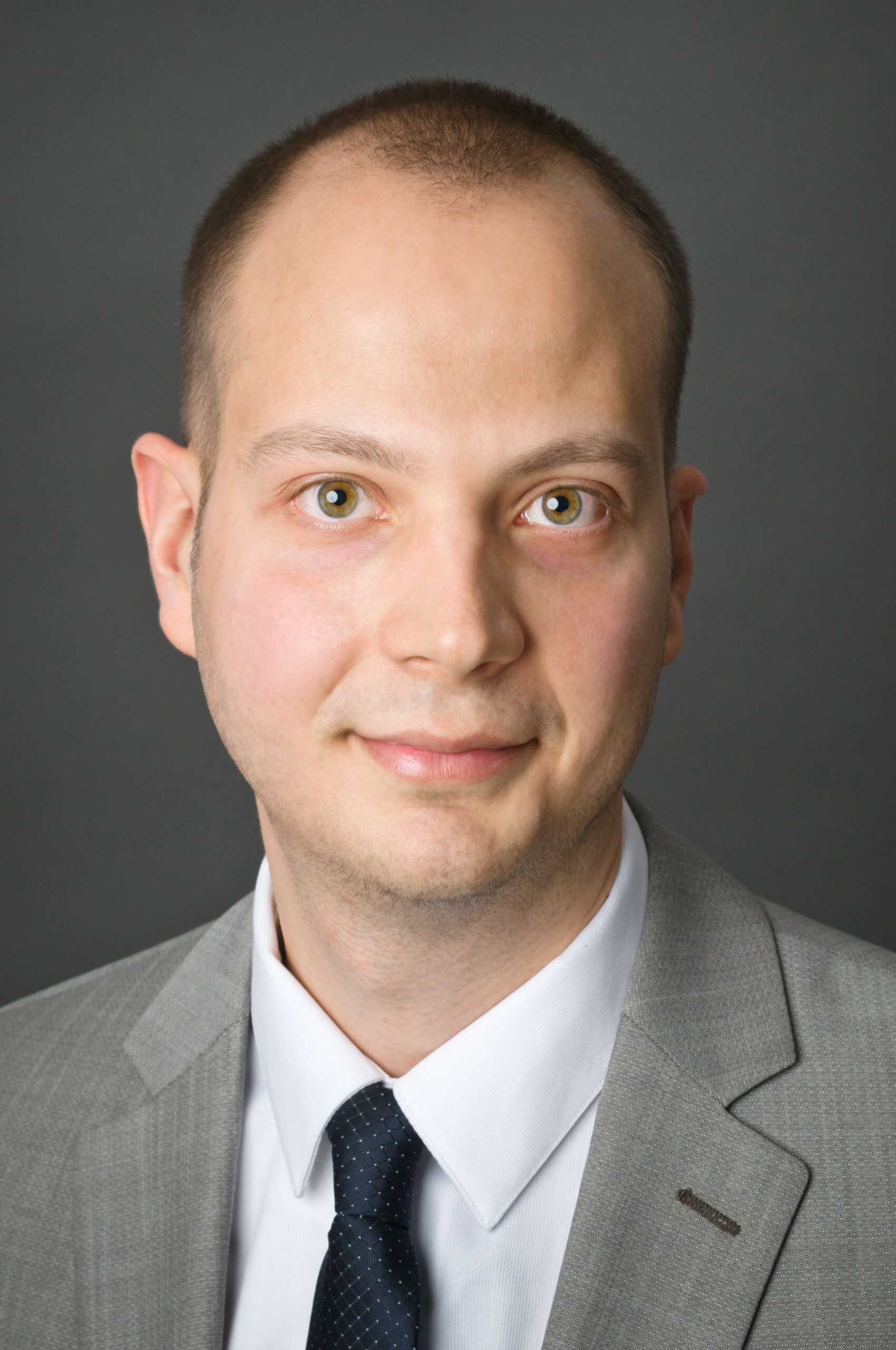
Goran Micevic, MD, PhD, is a faculty member in the Department of Dermatology at Yale University. He completed his MD and PhD degrees at the Yale School of Medicine. His PhD work focused on cancer biology and the role of DNA methylation in melanoma formation and progression. After completing his doctoral studies, Goran conducted post-doctoral work in tumor immunology in the lab of one of the pioneers of adaptive immunity, Dr. Richard Flavell. Goran’s research is centered on understanding the epigenetic changes that occur during the immune response to cutaneous malignancies and inflammatory skin disease, with the aim of developing improved therapies, diagnostic and prognostic markers. Goran’s clinical focus is dermatopathology and taking care of patients with skin cancer.
Natalia Reyes, 2018 Paul & Daisy Soros Fellow
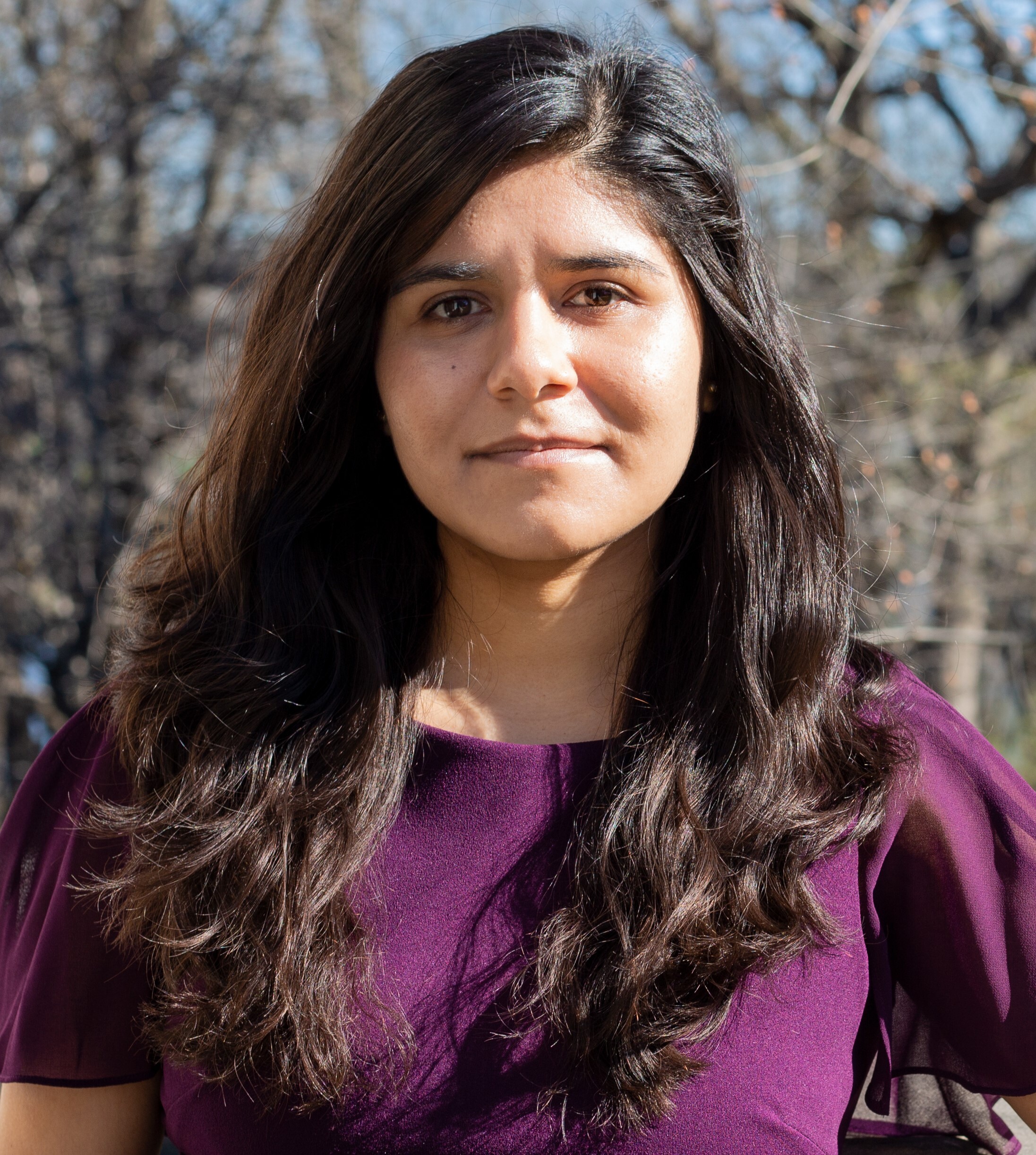
Natalia Reyes is a PhD candidate in English at the University of Pennsylvania, where her research focuses on the emergence of brownness as a racialized and cultural form in American literary production from the 19th century to the present. She graduated with honors in Rhetoric with a concentration in Public Discourse from UC Berkeley, and she holds graduate degrees from the Iowa Writers’ Workshop and the University of Pennsylvania. Her writing, teaching, and production work have been published in venues such as Nexos, Los Angeles Review of Books, Latin American Literature Today, Iowa Public Radio, and the Paris Institute for Critical Thinking. An accomplished writer, teacher, and researcher, Natalia has been recognized with a Provost’s Visiting Writer Fellowship in Fiction, the Taylor-Chehak Prize in Fiction, a Paul & Daisy Soros Fellowship for New Americans, a Sachs Program for Arts Innovation Curricular Support Grant, and a W.M. Keck Foundation Fellowship at The Huntington Library. She has taught writing at the University of Iowa, the University of the Arts, the University of Pennsylvania, and Drexel University. Natalia’s writing is represented by Jin Auh at The Wylie Agency. She is the child of immigrants from Mexico.
Denisse Rojas-Marquez, 2016 Paul & Daisy Soros Fellow
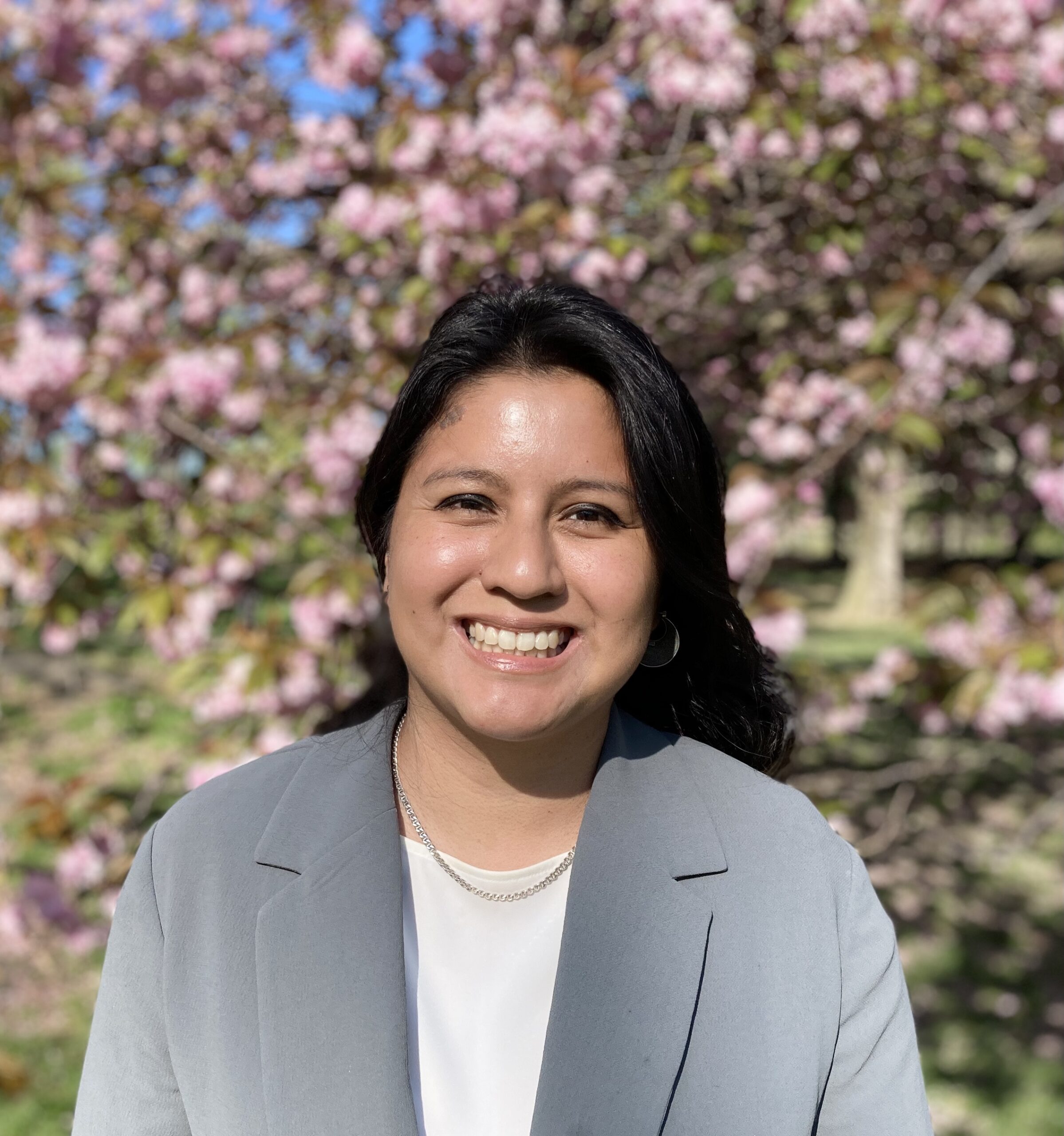
Denisse Rojas Marquez, MD, MPP is an emergency medicine resident at Boston Medical Center in Massachusetts and a co-founder of Pre-Health Dreamers, an advocacy organization for undocumented immigrants pursuing careers in health and science. She earned her MD at the Icahn School of Medicine at Mount Sinai and her MPP at the Harvard Kennedy School of Government. She is interested in promoting health justice in urban underserved settings, increasing diversity in the health care professions, and advancing the well-being of immigrant communities.
Victor Roy, 2012 Paul & Daisy Soros Fellow
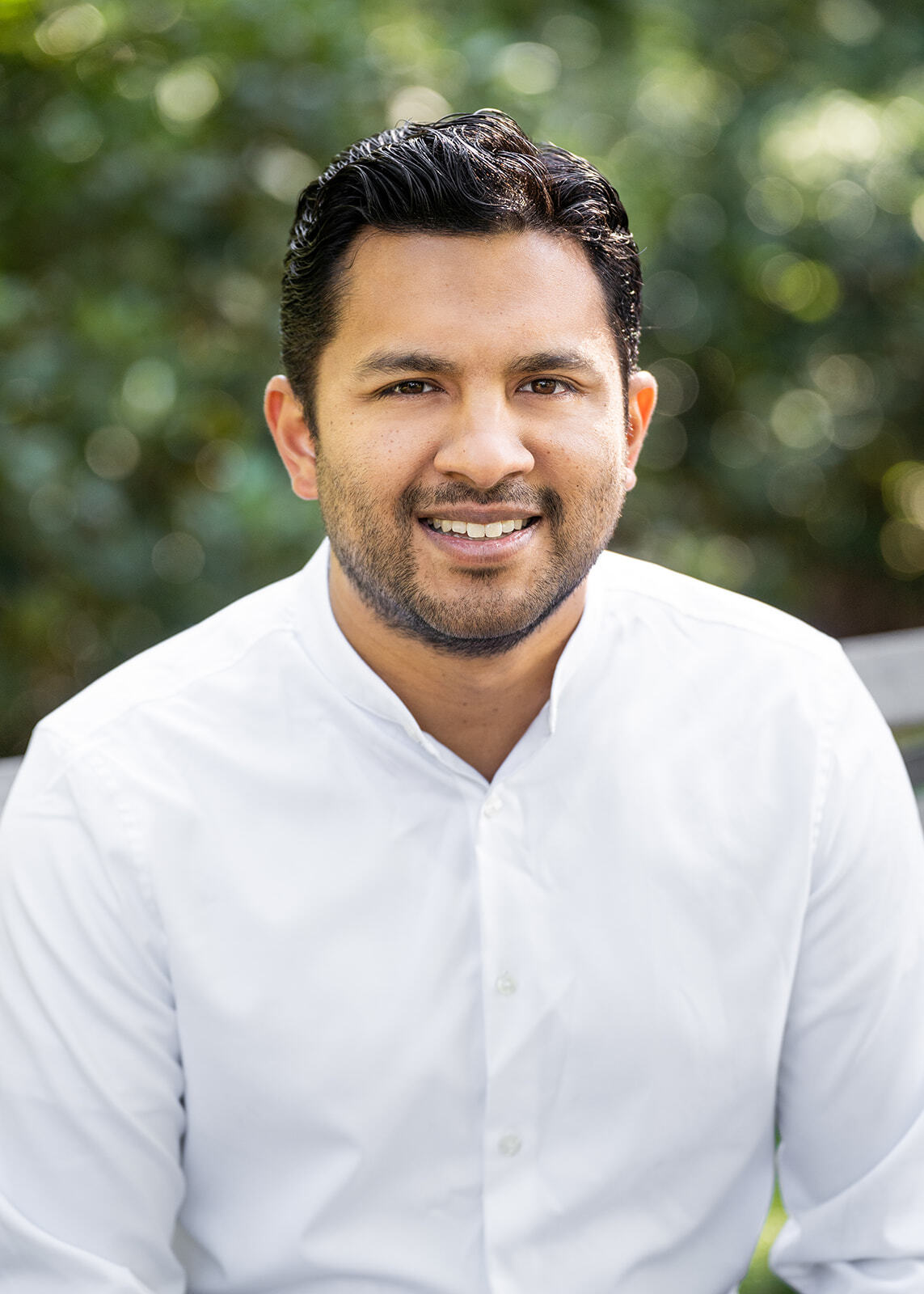
Dr. Victor Roy is a family physician and sociologist whose work has focused on the intersection of health and political economy, including equitable access to medicines and the growing financialization of health care. He is currently completing a post-doctoral fellowship in the National Clinician Scholars Program at Yale School of Medicine and will be starting as Assistant Professor of Family Medicine and Community Health at the University of Pennsylvania in the fall of 2024. He also directs the Health and Political Economy Project, a new initiative catalyzing action for an economy that enables people to have what they need for health and wellbeing.
Dr. Roy is the author of Capitalizing a Cure: How Finance Controls the Price and Value of Medicines, which focused on the case of breakthrough hepatitis C treatments. His writing has been featured in the New England Journal of Medicine and the BMJ. Previously, Dr. Roy co-founded and served as Executive Director of GlobeMed, a network of students on university campuses partnered with communities around the world to tackle poverty and health inequity.
He earned his MD as a Paul and Daisy New American Fellow at the Feinberg School of Medicine at Northwestern and his PhD in Sociology as a Gates Cambridge Scholar at the University of Cambridge. A practicing family physician, he completed his residency training during the COVID-19 pandemic at Boston Medical Center. He is the grandson of a physician and village health worker from rural West Bengal, India.
Monica Santana Rosen, 2003 Paul & Daisy Soros Fellow
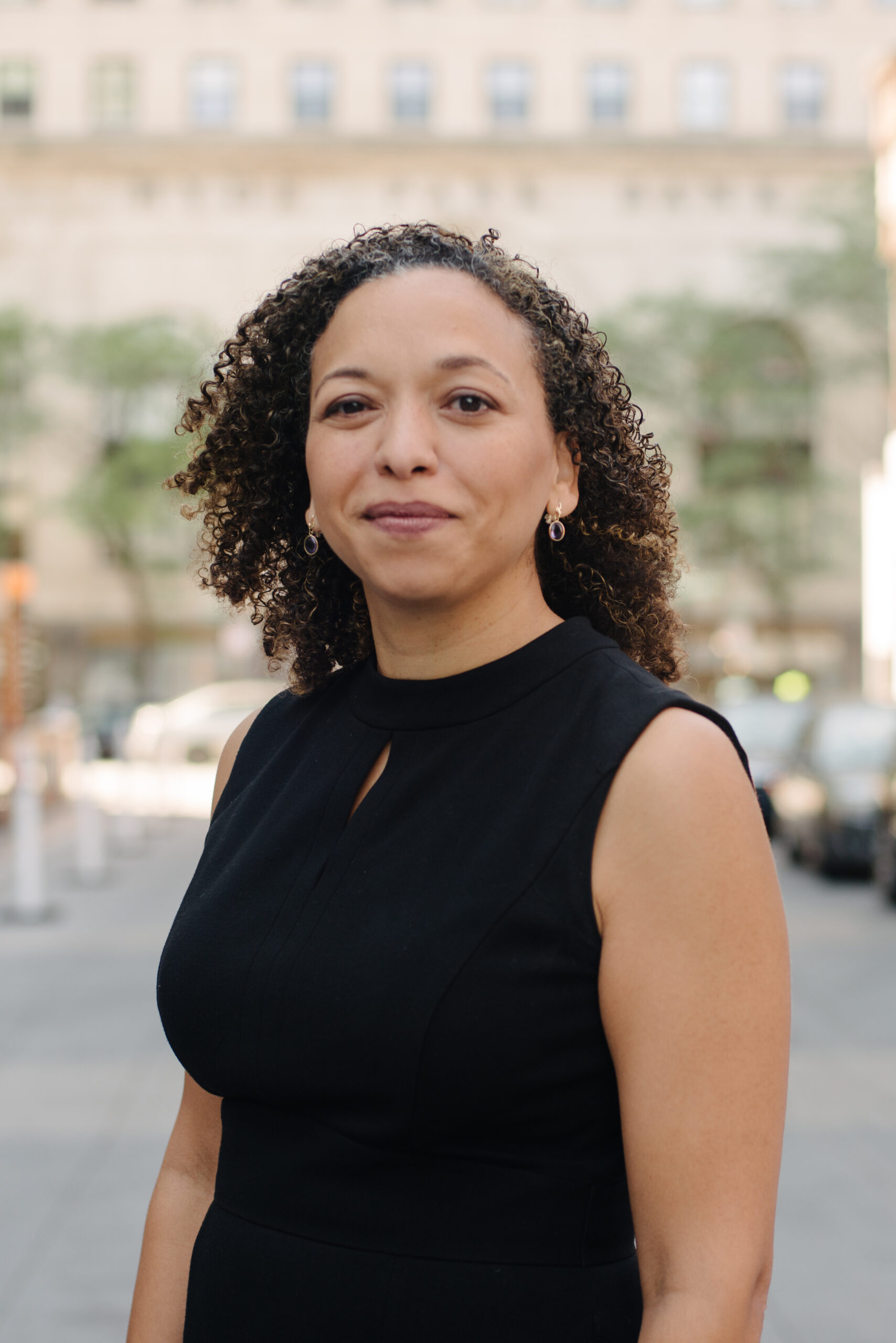
Monica Santana Rosen is a Black Latina leader who began her career 25 years ago, guided by a passion to support and strengthen organizations and their teams. In her current role as founder and CEO of Alma Advisory Group, LLC, Monica and her team have been called upon by clients to build strong, diverse workplaces, and enable leaders to do great work.
Prior to Alma, Monica launched a successful human capital consulting practice supporting urban school districts and educational organizations at consulting firm Cross & Joftus. This was a natural transition after she spent more than seven years at Chicago Public Schools, where she led a talent management redesign effort, managed a 65-member HR team, and supported leadership pipelines, principal development, and succession planning in her role as Talent Management Officer.
Monica began her career at the Tiger Foundation, where she administered grants to nonprofits working to break the cycle of poverty in New York City. She then served as the executive director for Management Leadership for Tomorrow (MLT), an organization that works to diversify leadership in the public and private sectors.
Monica serves as Chair of the board of the Danielson Group. She graduated from Wesleyan University and received her MBA from Harvard Business School, where she was a recipient of the Paul and Daisy Soros Fellowship for New Americans. Monica credits her success to her parents, who immigrated from the Dominican Republic and instilled in her the importance of a good education and a strong work ethic.
Shayak Sarkar, 2011 Paul & Daisy Soros Fellow
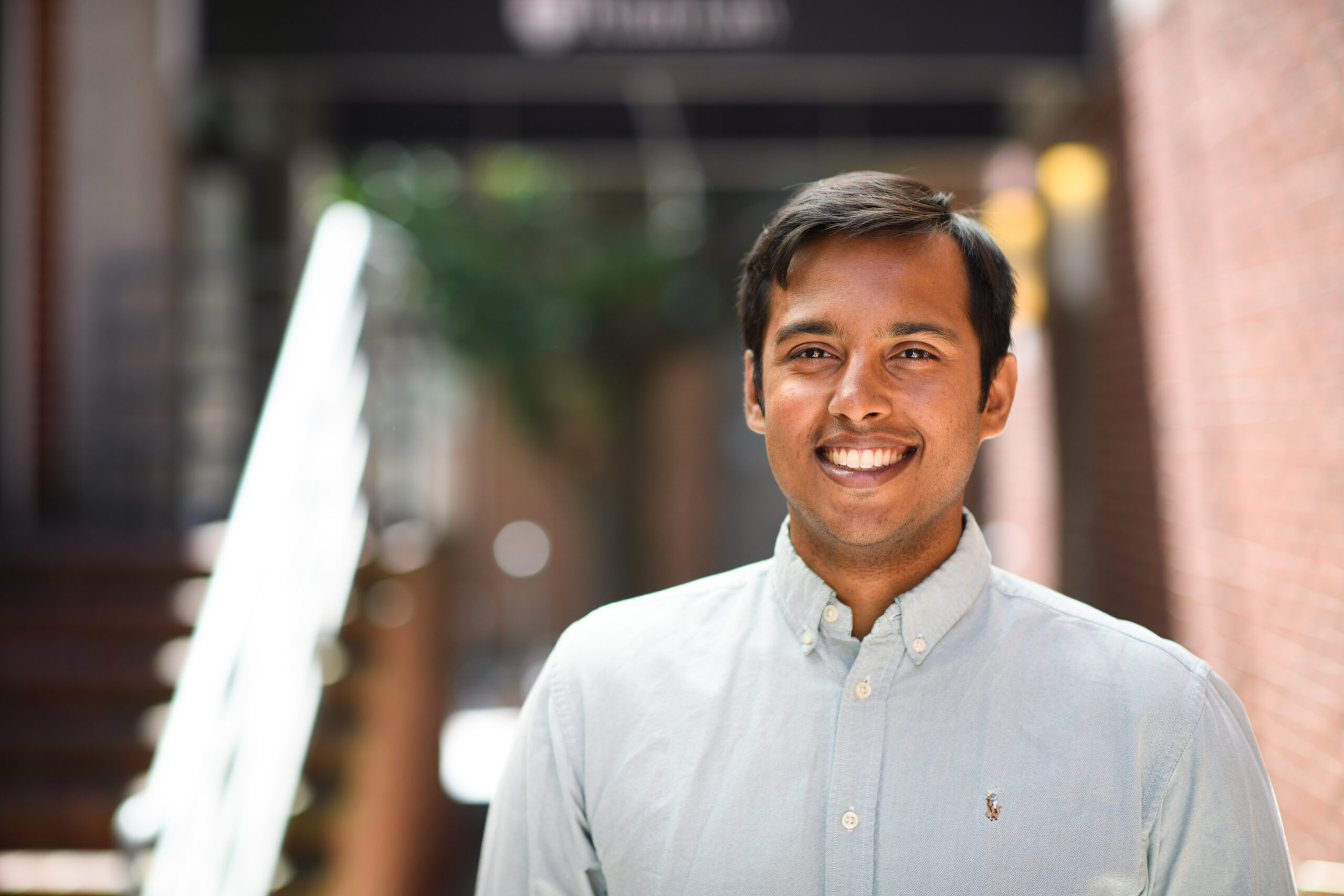
Shayak Sarkar’s scholarship addresses the structure and legal regulation of inequality. His substantive interests lie in immigration, taxation, employment law, and financial regulation. He obtained his Ph.D. in economics from Harvard.
Professor Sarkar clerked for the Hon. Guido Calabresi of the U.S. Court of Appeals for the Second Circuit. Prior to his clerkship, he practiced as an employment attorney at Greater Boston Legal Services, where he focused on domestic workers’ rights. He received his J.D. from Yale Law School, where he was active in the Iraqi Refugee Assistance Project and the Worker and Immigrant Rights Advocacy Clinic. Before law school he studied as a Rhodes Scholar at Oxford, where he earned masters degrees, with distinction, in social work and development economics.
His research has appeared in academic journals including the California Law Review, Georgetown Law Journal, the Harvard Civil Rights-Civil Liberties Law Review, the Harvard Journal of Law and Gender, the Yale Journal of Law and Feminism, and the Review of Economics and Statistics.
Naman Shah, 2010 Paul & Daisy Soros Fellow
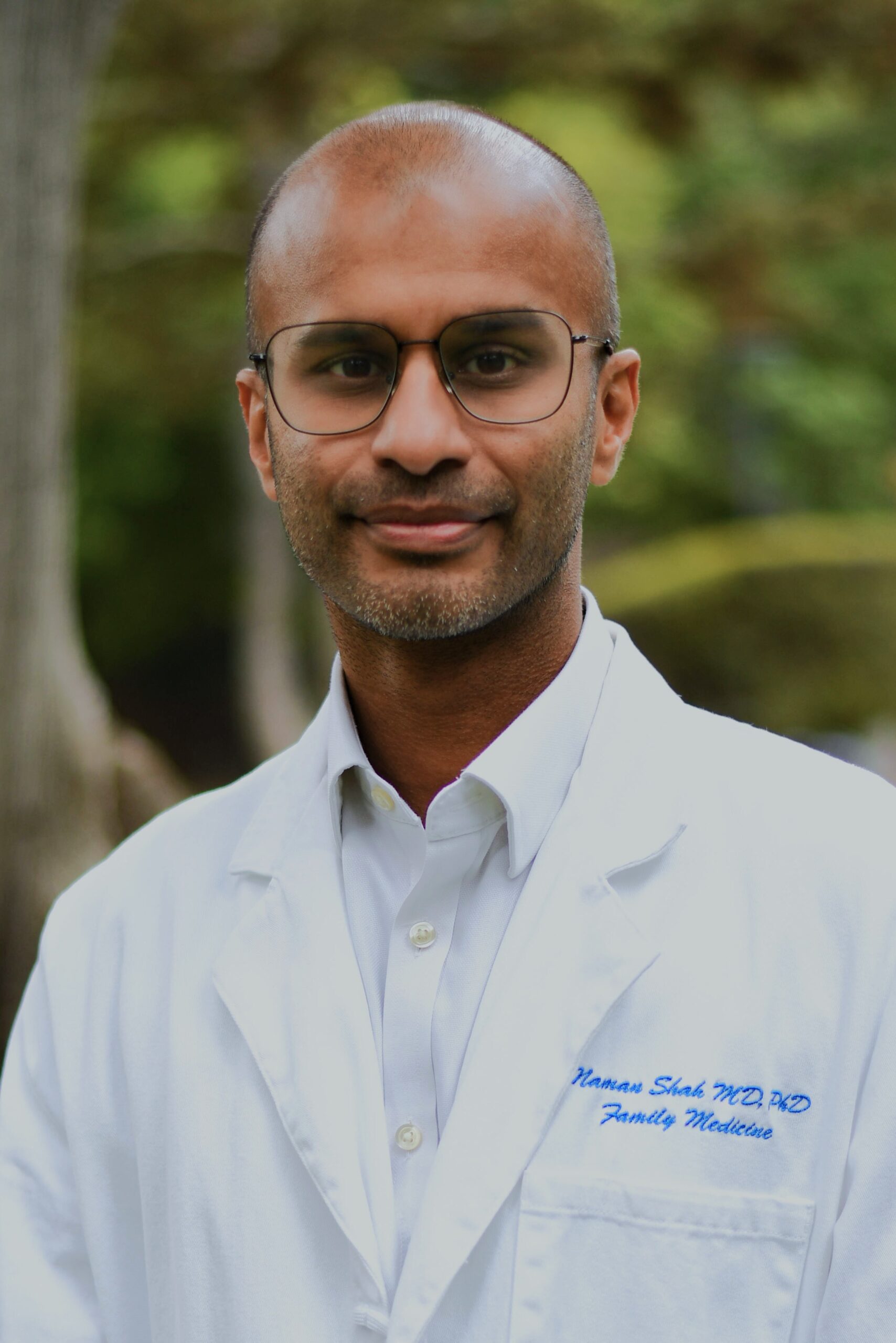
Naman Shah is the Director of Medical and Dental Affairs at the Los Angeles County Department of Public Health. He values the insights that hands on local public health work can bring along with its potential as a vehicle for participating in the dialogues and decisions which communities undertake. Dr. Shah led medical countermeasure distribution efforts during the COVID-19 and mpox emergencies and supports disease control, healthcare consumer protection, and other operations in his day-to-day role. He completed residency training in family medicine at Contra Costa County Regional Medical Center and holds an MD and a PhD from the University of North Carolina at Chapel Hill.
Dennis X. Tseng, 2013 Paul & Daisy Soros Fellow
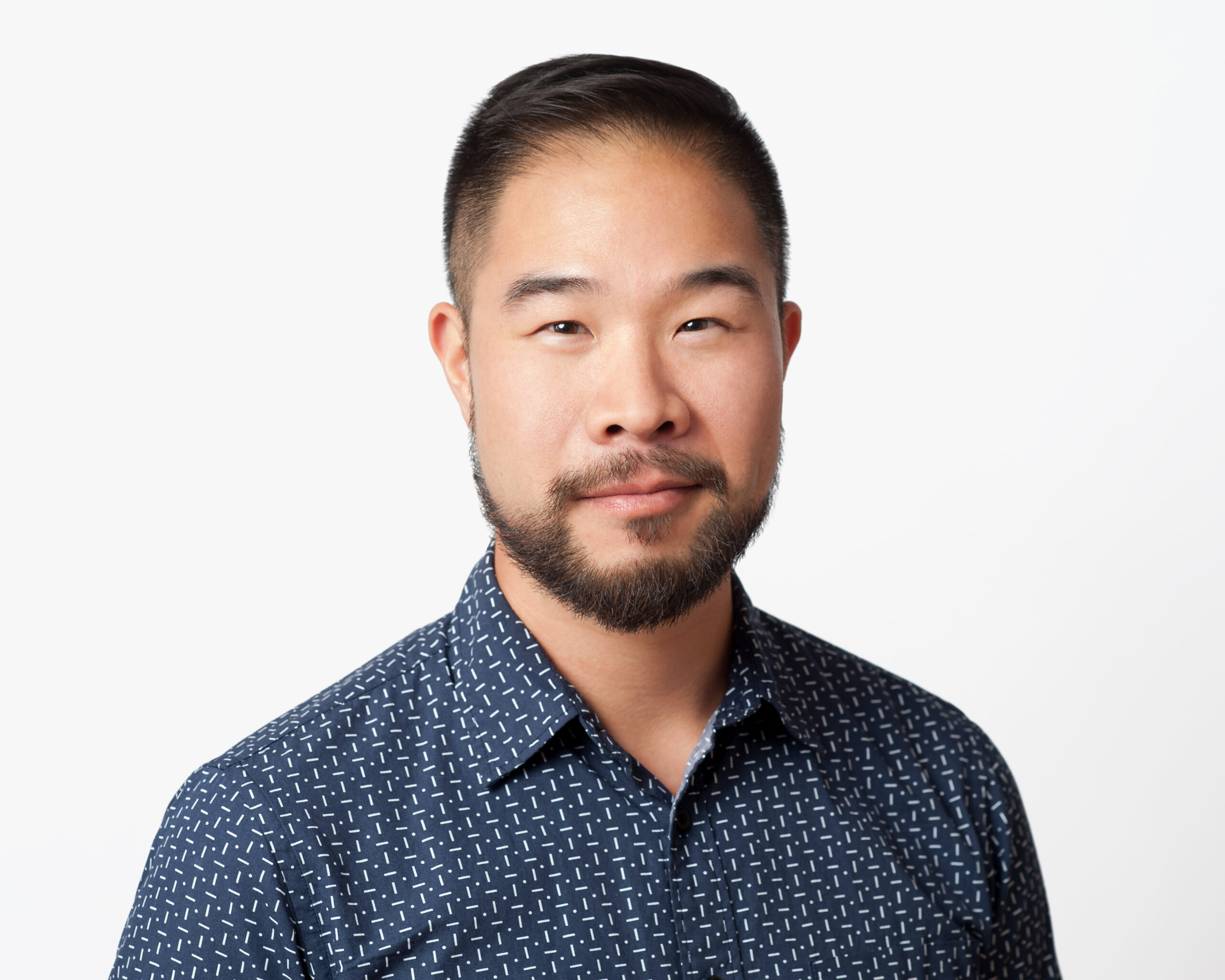
Dennis X. Tseng is a communication and diversity, equity, and inclusion professional, currently working at Google. Throughout his life, he always wanted to be a storyteller, making sense of the world through the power of narrative. He left his hometown of San Jose to study acting at New York University’s Tisch School of the Arts. Upon graduation, he found that show-business was particularly uninterested in casting or telling stories about Asian-Americans. Frustrated by his lack of agency, Dennis founded his own theater company where he served as the Executive Director, writing, directing, and producing 10 full-length productions over 5 years.
This led him back to business school at the Yale School of Management, where he earned the Paul and Daisy Soros Fellowship for New Americans and earned an MBA. He worked in consulting, organizational design, and culture, eventually leading to his current role at Google, where he leads narrative and communications for Equity Strategy, helping to make Google a place where everyone belongs. Outside of work, Dennis is a freelance screenwriter, but mostly spends his time in a chaotic, multi-generational household with his husband, his mom, his twin 4-year-olds, and two white cats named Becky and Darlene.
Shomik Verma, 2023 Paul & Daisy Soros Fellow
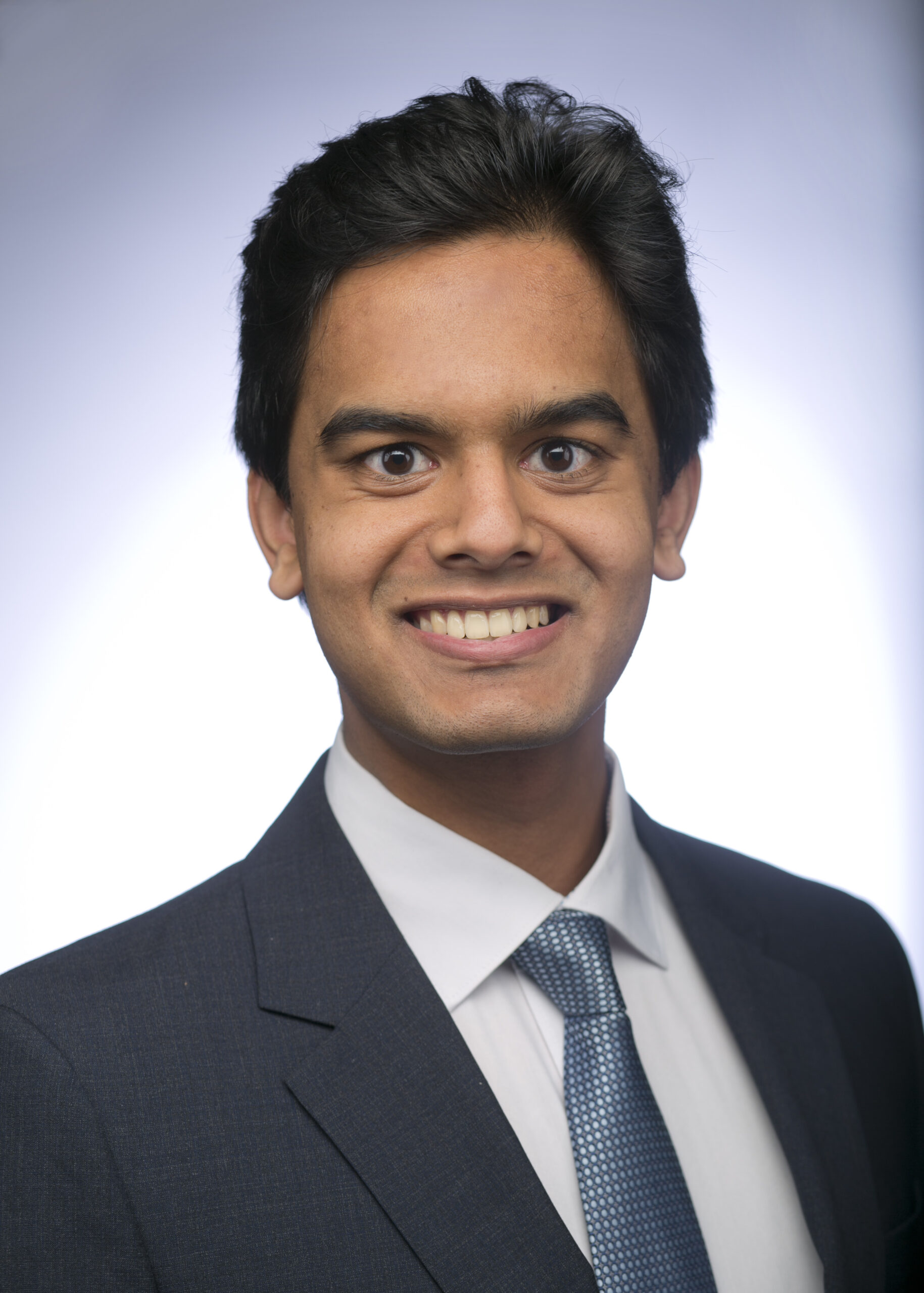
Shomik is interested in developing revolutionary technologies to solve global energy challenges. Shomik grew up in the oil and gas capital of the world, with parents who were from the coal capital of India. The fossil fuel industry provided his family with plentiful opportunities but also hurt them – when Shomik lost his uncle to black lung he decided it was time to devote his life to clean energy.
During his undergrad in mechanical engineering at Duke University, he helped lead the Duke Electric Vehicles team to two Guinness World Records for fuel efficiency, for both battery electric and fuel-based vehicles. In the UK, as a Marshall Scholar he worked on improving the efficiency of solar cells, completing an MPhil in materials science with Professor Aron Walsh at Imperial College London on designing novel photon conversion materials using computational chemistry and machine learning, and with Professor Rachel Evans at the University of Cambridge on embedding these materials in 3D printed parts that could couple with solar cells.
Now, Shomik is pursuing a PhD in mechanical engineering at MIT with Professor Asegun Henry, where he is working on energy storage to make variable renewable energy sources such as solar more reliable, and on a next-generation power plant based on thermophotovoltaic power conversion. After his PhD, Shomik hopes to use his skillset to decarbonize industry and make cheap, clean, and reliable energy available to all.
Featured Fellows
-
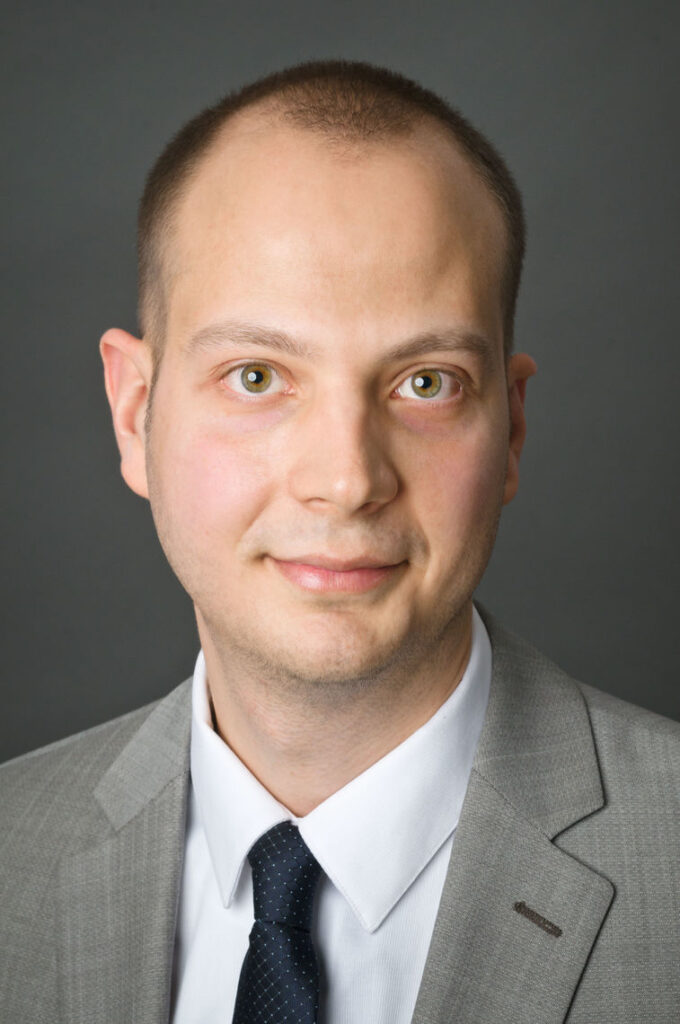
Goran Micevic
PhD, Yale University, MD, Yale University
Goran Micevic is the child of immigrants from Macedonia and Bosnia and Herzegovina. Fellowship awarded in 2016 to support work towards a PhD and an MD at Yale University
-
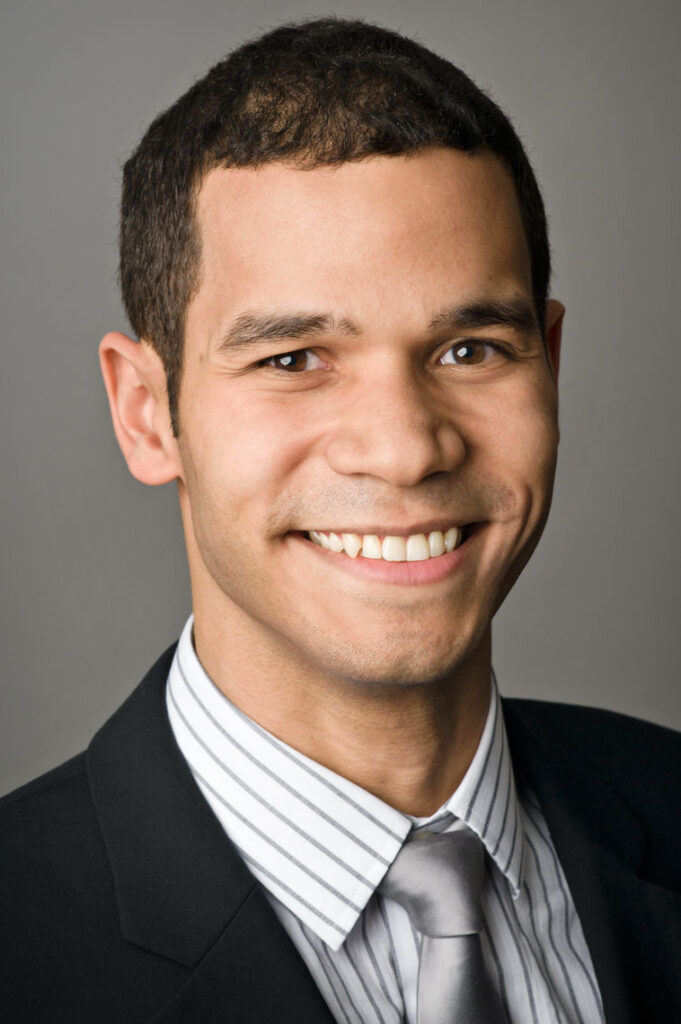
Wilfredo Matias
MD, Harvard University
Wilfredo Matias is an immigrant from Dominican Republic. Fellowship awarded in 2013 to support work towards an MD in Medicine at Harvard University
Keep Exploring
-
 Read more: The Public Voices Fellowship of PD Soros, in partnership with the Oped Project: Year Four
Read more: The Public Voices Fellowship of PD Soros, in partnership with the Oped Project: Year FourThe Public Voices Fellowship of PD Soros, in partnership with the Oped Project: Year Four
-
Read more: NOT ON MY RESUME: Ming Hsu Chen
- Fellow Highlights
- Fellows in Action
NOT ON MY RESUME: Ming Hsu Chen
-
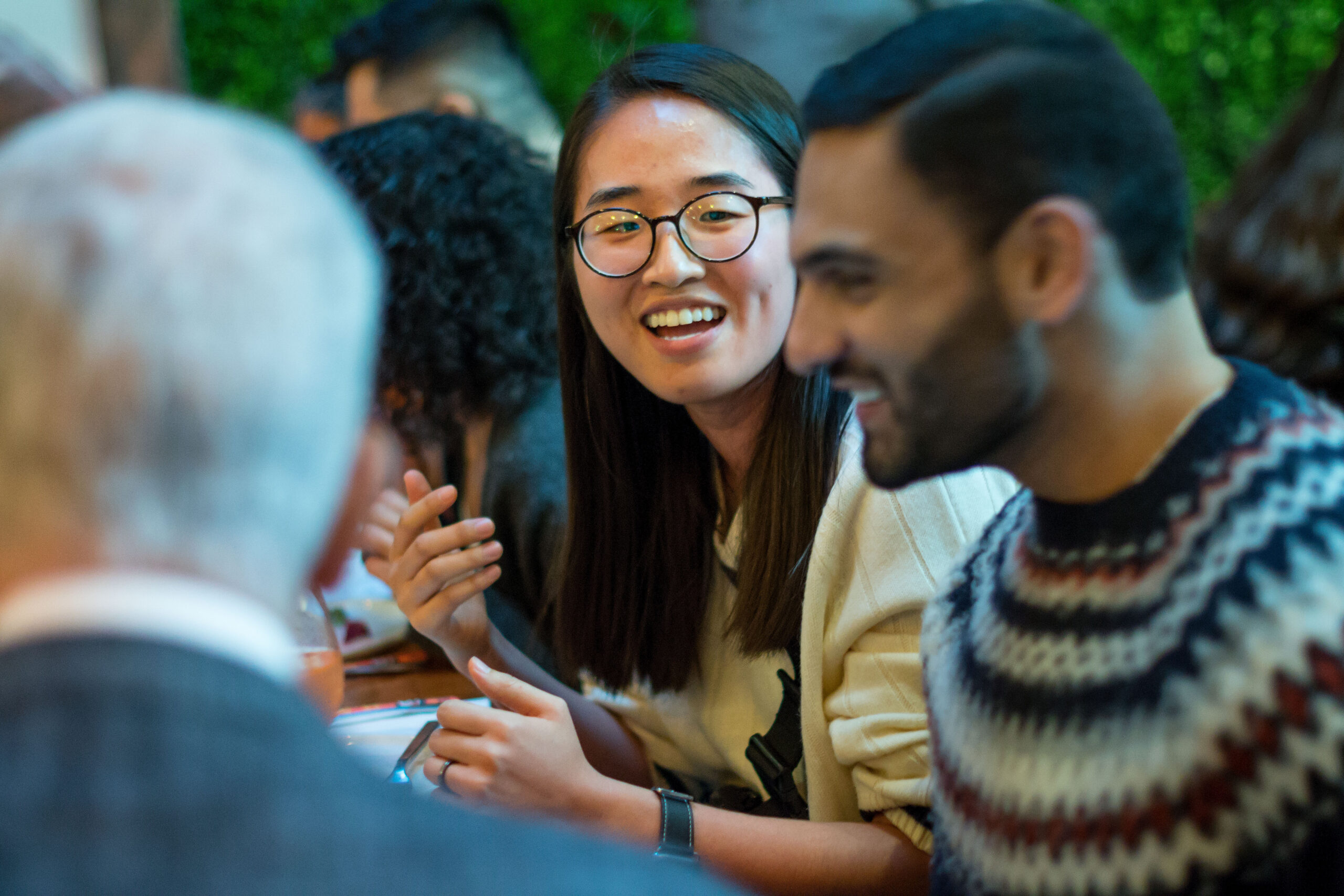 Read more: Kathy Ku Steps into Leadership as PDSFA Chair
Read more: Kathy Ku Steps into Leadership as PDSFA Chair- Board of Directors
- Fellowship News
Kathy Ku Steps into Leadership as PDSFA Chair
-
 Read more: Q&A with MD/PhD Student Silvia Huerta Lopez
Read more: Q&A with MD/PhD Student Silvia Huerta LopezQ&A with MD/PhD Student Silvia Huerta Lopez
Aenean ut aliquet quam, sit amet ullamcorper dolor. Aliquam nec ultricies sem. Nunc malesuada elementum libero non accumsan. Nam at venenatis odio. Aenean euismod rhoncus nulla id varius. Ut ultrices velit vel dui gravida ullamcorper. Proin lobortis leo et venenatis consectetur. Aliquam iaculis ipsum id tristique euismod. Donec tempor a purus ut tempus.
Integer quis lorem pulvinar nulla eleifend pretium sed quis elit. Nullam vehicula id eros vitae blandit. Fusce eu vestibulum erat. Pellentesque molestie in arcu a fermentum. Maecenas tempus vestibulum enim at fermentum. Mauris eget eleifend neque, ac varius lacus. Aliquam quis urna aliquam orci iaculis faucibus. Curabitur at justo vehicula, cursus justo quis, iaculis nisl. Sed facilisis aliquam velit vel tempus. Duis varius nibh sed quam pulvinar imperdiet. Cras turpis nulla, fermentum eget aliquet ac, rutrum id libero.
“Add an engaging quote and include quotation marks around it, like this example.”
Full Name, Title

A caption goes here. For example: 2021 Paul and Daisy Soros Fellows smiling with Mrs. Daisy Soros at the 2022 Fall Conference in Queens, NY.
Vestibulum posuere, ipsum vel ullamcorper consectetur, ipsum sem commodo enim, ut condimentum velit neque in ipsum. Nam pulvinar tristique justo nec tempus. In metus ipsum, porta in posuere id, congue eu felis. Fusce eu mi tristique, sagittis purus et, dictum nibh. Nulla sit amet sapien et tortor sollicitudin iaculis quis eget mauris. Ut at risus felis. Morbi ac massa quis tellus iaculis interdum et vitae nisi. Integer scelerisque condimentum imperdiet. Mauris faucibus venenatis condimentum. In eleifend hendrerit rhoncus. Quisque varius hendrerit eros sed rhoncus.
Aenean ut aliquet quam, sit amet ullamcorper dolor. Aliquam nec ultricies sem. Nunc malesuada elementum libero non accumsan. Nam at venenatis odio. Aenean euismod rhoncus nulla id varius. Ut ultrices velit vel dui gravida ullamcorper. Proin lobortis leo et venenatis consectetur. Aliquam iaculis ipsum id tristique euismod. Donec tempor a purus ut tempus.
Phasellus fermentum non nunc fringilla mollis. Quisque tincidunt, mauris in eleifend euismod, turpis augue sodales felis, quis lacinia ex leo non nisi. Proin luctus mauris rhoncus libero suscipit ornare. Nullam turpis magna, aliquam ut dictum at, commodo eu nulla. Cras aliquet volutpat tincidunt. Sed pharetra iaculis quam, id vestibulum nisi efficitur id. Maecenas ut risus a arcu volutpat placerat sed at ante. Nulla sed ultrices odio. Ut cursus imperdiet tortor, vitae sodales turpis placerat at. Proin fringilla ligula eget leo dignissim finibus. Vestibulum id quam varius, suscipit est sit amet, maximus erat.
Featured Fellows
-

Goran Micevic
PhD, Yale University, MD, Yale University
Goran Micevic is the child of immigrants from Macedonia and Bosnia and Herzegovina. Fellowship awarded in 2016 to support work towards a PhD and an MD at Yale University
-

Wilfredo Matias
MD, Harvard University
Wilfredo Matias is an immigrant from Dominican Republic. Fellowship awarded in 2013 to support work towards an MD in Medicine at Harvard University
Keep Exploring
-
 Read more: The Public Voices Fellowship of PD Soros, in partnership with the Oped Project: Year Four
Read more: The Public Voices Fellowship of PD Soros, in partnership with the Oped Project: Year FourThe Public Voices Fellowship of PD Soros, in partnership with the Oped Project: Year Four
-
Read more: NOT ON MY RESUME: Ming Hsu Chen
- Fellow Highlights
- Fellows in Action
NOT ON MY RESUME: Ming Hsu Chen
-
 Read more: Kathy Ku Steps into Leadership as PDSFA Chair
Read more: Kathy Ku Steps into Leadership as PDSFA Chair- Board of Directors
- Fellowship News
Kathy Ku Steps into Leadership as PDSFA Chair
-
 Read more: Q&A with MD/PhD Student Silvia Huerta Lopez
Read more: Q&A with MD/PhD Student Silvia Huerta LopezQ&A with MD/PhD Student Silvia Huerta Lopez